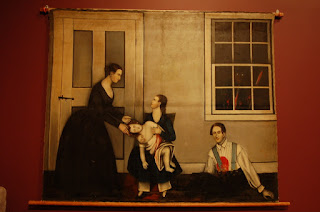NEST OF SNAKES
“…to withdraw the citizens of the United States from all further participation in those violations of human rights which have been so long continues on the unoffending inhabitants of Africa, and which the morality, the reputation, and the best interests of our country, have long been eager to proscribe.”- Thomas Jefferson, State of the Union 1806
I’m not much of a capitalist, but I have tried my hand at a few failed business ventures like selling fish worms and Holylgm Water, and dealt drugs from time to time. Never much of a player, only a small time “cottage dealer” connection, I dabbled in both the sale and use of the stuff. And where did I keep my drugs? In the bank. Not wanting to be caught with anything more than a small quantity of product, it was common practice (in the 1980’s) to open up a checking account, and buy a safety deposit box in a small neighborhood bank. That way, if the cops ever did come to my apartment, the place was relatively clean.
Once or twice a week, I would go to my bank in San Francisco’s Mission District. A pleasant teller would lead me to my box, we’d both turn the keys and then she’d leave me alone with my stash of illicit, schedule one contraband. I’d take out only what I needed for servicing my community of weekend partiers and leave the rest, safe from prying eyes. I never made much money and it became a full time job just to keep my girlfriend’s nose out of the inventory. I did learn a little about supply side economics and the importance of privacy in all banking transactions. Secrecy mechanisms of “trust,” allow commodities to exist in a shadow economy, where possession is actually not nine tenths of the law. The drugs do not exist. Don’t look here. Look there. As their slogan declares, “Life’s better when we’re connected.” You can say that again. Thank you Bank of America. Couldn’t have done it without you.
Reading Thomas Jefferson’s words from Dec. 2, 1806, you’d think he’d just abolished American slavery. So I double check the date. It’s correct. Jefferson’s panacea for the slave trade was all about personal property, not freedom for blacks. Ask any bootlegger, or drug dealer, how to sustain your profit margin, and they will lobby for keeping product,(and it’s importation) confined to a closed system, or cartel, and always illegal. This assures a very healthy bottom line and ultimate control of dispersal. Thomas Jefferson’s words are worshiped like scripture, but in this case all Jefferson did was put the International slave trade exclusively into American criminal hands; extending the African’s misery, cutting out foreign competition, while making a lot more money for everyone in the U.S. It was all about limiting “flight capital,” going to Great Britain, instead of being reinvested in the United States.
And this wasn’t the only contradiction in the Jeffersonian thought process. For all his enlightened genius and manipulation of closed capitalist systems,Thomas Jefferson was also an early proponent of scientific racism, (or race biology) expounding in various print articles on the “proof” of the black’s inferiority. The author of the Declaration of Independence died owning slaves, with a boatload of money. There’s your founder.
The slave economy embraced by the plantation system of the South, was working perfectly until the bust of 1819. Then, overnight, notes came due, while property values plummeted. Credit dried up, banks foreclosed on small farms and once again we have to go back to that snowy summer of 1816 for the causes. Failed crops in Europe, after the volcanic eruption, had fueled the American agrarian boom, and subsequent land frenzy, with a seemingly insatiable European market for American products, no matter what the price. More land was needed to plant more cotton and tobacco, to satisfy the demand. And more slaves were needed to pick it all. The profits from the British slave trade could not be allowed to go off shore.
With the south, now under Gen. Andrew Jackson’s militaristic paternalism, the planter elite and land speculators pushed further and further into the remaining western Carolina, Creek and Cherokee Indian territory; with little regard for anything other than acquiring more real estate. Jackson was a powerful land agent as well, operating with blessing and full backing of the American government and military.
Nobody thought the bottom would ever fall out. But it did. European bumper crops in the 1818 post-volcanic season, allowed the overseas economy to rebound, flooding American markets with cheaper products than they could grow themselves. Land prices plummeted. This gave the historically friendly Indian tribes of the south a temporary reprieve, as the banks pulled back, reorganized, and land acquisition came to a standstill. The stall wouldn’t last long.
Once the American economy stabilized, by the early 1820’s, the land rush was back on, and the slave owner and land agent, General Andrew Jackson was the tip of the spear. The banks were back in the game. A decade later, now President Andrew Jackson, signed into law The Indian Removal Act of 1830 (with Martin Van Buren as his Secretary of State) setting the stage for the continental agrarian invasion that would push west of the Mississippi, spreading slavery, homesteading, easy credit and genocide all the way to the Pacific.

Comments
Post a Comment